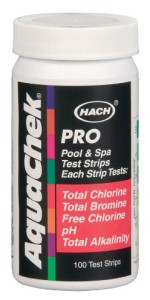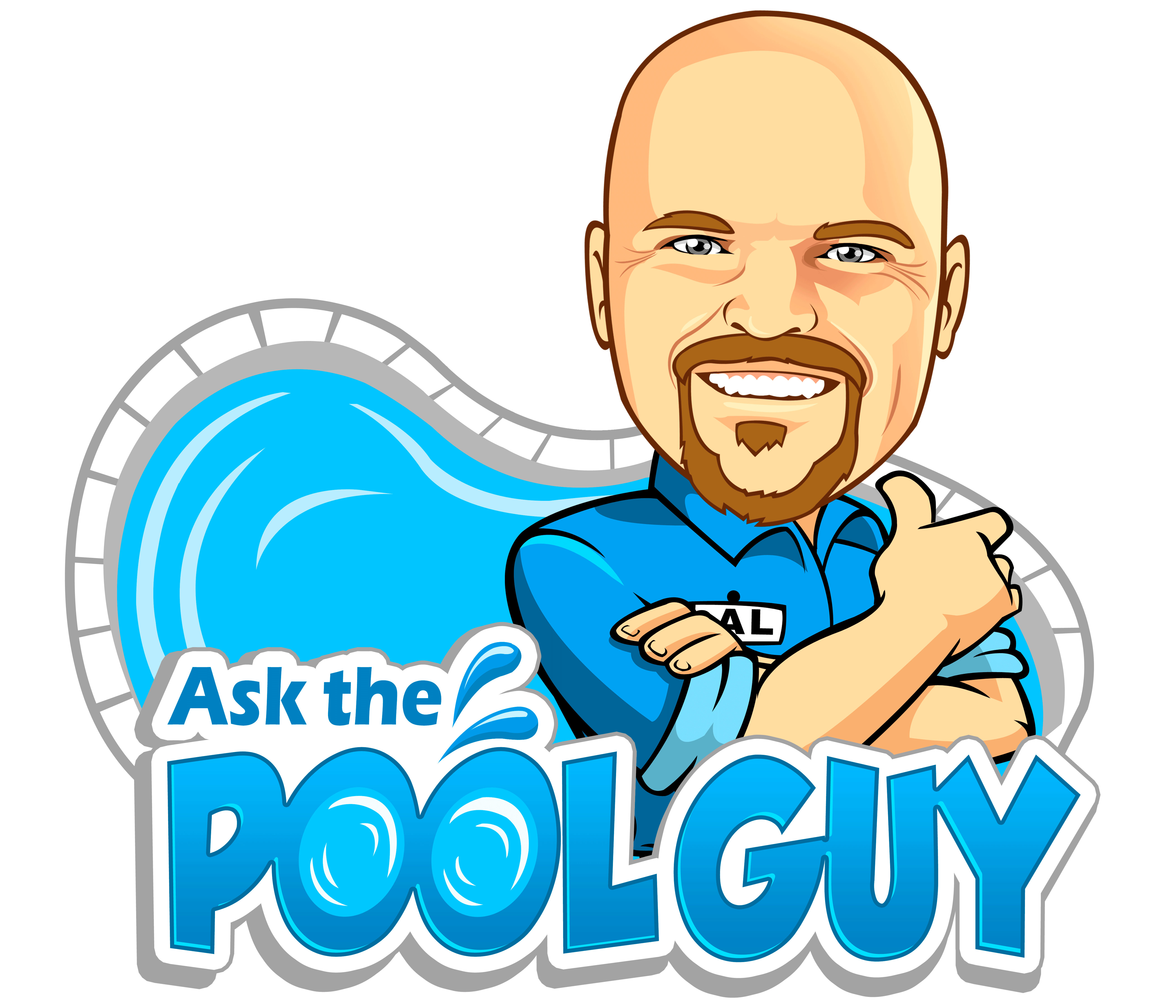This is definitely one of the most common questions at Ask the Pool Guy, “What is the proper water chemistry for my pool?” Many builders offer training lessons for new owners, and we suggest you take them up on that if you’re new to the world of swimming pools. If you purchase a home with an existing pool you know nothing about then check around for a pool company in your area. Often these beginner lessons are complimentary with the fee of a service call you will likely need anyways.
Maintaining the correct water chemistry is unique to each pool for the most part. Since the equipment used on each pool is specific to the pool, it is important to learn what your pool will require. The first essential item for proper water chemistry is a test kit. Choose one that is simple to use and easy to interpret. We like the Aqua Chek 5 or 7 in 1 test strips or the TruTest best.
Here are the most important things to look for regarding your pool water chemistry:
- Follow manufacturer directions for testing your water.
- When you need to add chemicals, read the label about the proper way to do so.
- When you need to add chemicals, cut the doses in half and add half at a time. This allows your water to circulate so you can re-check it before adding the other half.
- Keep a record of your results.
- ALWAYS know what chemicals go in what order. Order matters. Do not dump two different chemicals in the pool at the same time. This could cause a scary chemical reaction.
Ask the Pool Guy’s Ideal Numbers for Water Chemistry:
- FCL 1.0-3.0 ppm (free chlorine)
- pH 7.4-7.6
- TA or ALK 80-120 (total alkalinity)
- CH 200-350 Gunite Pools or 150-200 Vinyl pools, 200-250 for Hybrid swimming pools (calcium hardness)
- CYA 20-60 (Cyanuric Acid/Stabilizer)
- TDS <1500 in non salt pools (total dissolved solids)
- Salt levels, refer to manufacturer directions
